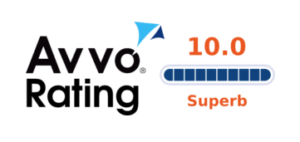



Do You Have a UNUM Lawsuit?
 UNUM, a significant player in the U.S. insurance market, offers services such as disability coverage, investment options, and dental and vision insurance.
UNUM, a significant player in the U.S. insurance market, offers services such as disability coverage, investment options, and dental and vision insurance.
Founded by Hugo Wesendonck in 1860, the company employs over 9,500 staff members and 2,700 agents working across more than 70 offices nationwide. However, like many large insurance firms, UNUM has faced controversy for prioritizing business interests over the needs of policyholders. Our UNUM lawsuit attorneys are here to provide you with the knowledge and strategies needed to effectively manage the complexities of UNUM lawsuit cases.
Understanding UNUM’s Disability Insurance Policies
UNUM offers a variety of insurance products, including long-term disability insurance. However, successfully filing a claim can be challenging, often requiring claimants to navigate significant obstacles. UNUM has previously employed strategies to avoid benefit payouts, such as canceling entire coverage categories to reduce the costs of ongoing treatments. These actions not only blocked compensation for multiple policyholders but also prompted the passage of “Ian’s Law,” which strengthens protections for individuals with severe medical conditions.
Common Grounds for UNUM Denials
When filing a long-term disability claim with UNUM, it’s essential to meet the specific definition of disability outlined in your policy. Failure to do so may result in a denial, which UNUM will explain in detail via mail. The company evaluates claims through various means, including strict policy requirements and intrusive investigative methods such as video surveillance.
Common reasons for claim denial include:
- Insufficient evidence of disability: Claimants must provide extensive proof of their condition, which may require more than just medical records and diagnoses.
- Biased assessments by UNUM doctors: UNUM can use its own physicians for evaluations, whose conclusions may sometimes be skewed to favor the company’s interests.
- Missed deadlines: Meeting deadlines is critical to avoid claim denial or losing eligibility for benefits.
- Discrepancies in disability claims: UNUM may use surveillance to uncover inconsistencies between a claimant’s reported condition and their behavior, justifying denial.
- Shifting from “own occupation” to “any occupation” policies: Proving disability across all job types becomes harder for claimants after the “own occupation” period ends.
Navigating the UNUM Long-Term Disability Process
Beginning the process of securing long-term disability benefits from UNUM requires thorough preparation. Claimants should anticipate rigorous scrutiny, as UNUM often employs various tactics to find legal grounds for denial. It is critical to provide comprehensive medical evidence that not only confirms the presence of the disability but also demonstrates how it affects the claimant’s ability to perform work-related tasks.
UNUM may delay the process by requesting duplicate documents or claiming non-receipt of records. To counteract these tactics, claimants should maintain well-organized documentation and present a clear, honest depiction of how their condition impacts their daily life and work capabilities.
For more information on UNUM and its services, visit UNUM’s official website.
Real Case Results for Real People
A customer service representative, unable to work due to severe migraines, had her Unum disability claim unfairly denied after initial approval, with Unum claiming there wasn’t enough “objective evidence.” Attorney Stephen Jessup fought back, using doctor statements, a headache log, and strong legal arguments to challenge Unum’s biased in-house review. By demanding an independent neurologist’s exam, which confirmed the client’s condition, Jessup forced Unum to approve her benefits within a week.
Meet Our Unum Lawsuit Attorneys
Frank N. Darras, Founding Partner
- Experience: Over 30 years taking on Unum in long-term disability and care litigation.
- Track Record: Recovered nearly $1 billion for clients wrongfully denied by Unum.
- Awards & Recognition: Named to Lawdragon’s Top 500 Lawyers in America for 18 years, Best Lawyers in America since 2006, and a leading voice on ERISA and disability law.
Susan B. Grabarsky, Senior Trial Attorney
- Experience: Represents individuals and groups, using her past as an insurance cost-containment analyst to outsmart Unum’s denial tactics.
- Track Record: Turns insider knowledge into victories, ensuring Unum pays valid claims.
- Awards & Recognition: Known for aggressive advocacy against Unum’s unfair practices.
Heather Gardner, Senior Associate
- Experience: Specializes in ERISA and individual disability appeals against Unum.
- Track Record: Works with Frank Darras to unravel Unum’s complex denials, securing benefits for clients.
- Awards & Recognition: Respected for her precision in challenging Unum’s wrongful denials.
Phillip S. Bather, Associate Attorney
- Experience: Expert in bad-faith and ERISA cases, handling intakes and appeals against Unum.
- Track Record: Builds compelling cases to reverse Unum’s unjust claim denials.
- Awards & Recognition: Valued for his dedication to clients facing Unum’s resistance.
Trusted Legal Credentials
- AV Preeminent® Rated – Martindale-Hubbell
- Best Lawyers in America – Disability Law
- Lawdragon 500 Leading Plaintiff Lawyers
These badges represent our decades-long commitment to ethical, top-tier legal representation.
Unum Lawsuit FAQ’s
What is the main reason for a Unum lawsuit?
Unum lawsuits often arise from the company's denial of long-term disability claims. Policyholders claim that Unum uses various tactics to deny valid claims, forcing claimants to sue to receive their benefits.
Learn more about the main reasons for Unum lawsuits here.
What are common reasons Unum gives for denying claims?
Unum commonly denies claims for reasons such as insufficient medical evidence, the opinion of Unum's own doctors who may not have examined the claimant, missed deadlines in the application process, or inconsistencies found through surveillance.
Learn more about the common reasons UNUM denies claims here.
What is "own occupation" vs. "any occupation" disability?
A disability policy may define "disability" in two ways. "Own occupation" means you are unable to perform the duties of your specific job. "Any occupation" means you are unable to perform the duties of any job for which you are reasonably suited by training, education, or experience. The shift from "own occupation" to "any occupation" is a common reason for Unum to terminate benefits after an initial period.
To find which option is better for you, click here.
What is "Ian's Law" and how does it relate to Unum?
Ian's Law was passed in California to protect individuals with severe and permanent physical conditions from having to repeatedly prove their disability. It was enacted after a long legal battle involving a man named Ian, whose claim was repeatedly denied by Unum, highlighting the company's controversial denial tactics.
Learn more about Ian's Law here.
Should I hire an attorney for my Unum disability claim?
The article strongly suggests consulting with a long-term disability attorney, especially if your claim has been denied. An experienced attorney can help you gather the necessary medical evidence, navigate the complex legal process, and improve your chances of a successful appeal or lawsuit.
How should I prepare my Unum disability claim?
To prepare a strong claim, you should provide a comprehensive medical record, including objective medical evidence like test results. It is also crucial to be prepared for Unum's tactics and maintain detailed, organized documentation of your condition and communication with the insurance company.
How much is an Unum lawsuit worth?
The potential value of an Unum lawsuit can be significant, as DarrasLaw, a firm specializing in these cases, claims to have recovered over a billion dollars in wrongfully denied insurance benefits. The actual amount depends on the specifics of the individual policy and the damages awarded in the case.
What should I do if my Unum claim is denied?
If your Unum claim is denied, you should immediately review the denial letter to understand the reasons. You then have a limited amount of time to appeal the decision. The article recommends seeking legal counsel to help you challenge the denial effectively and file a lawsuit if necessary.
Commencing a Lawsuit Against UNUM
If your long-term disability claim with UNUM is denied, it’s important to stay persistent. The first step is to carefully review the denial letter to identify the specific reasons for rejection. This will help you gather the necessary evidence to build a stronger case. You can pursue this on your own or seek assistance from a long-term disability attorney experienced in UNUM lawsuits. These legal professionals can help bolster your claim and potentially avoid further denials.
While navigating a lawsuit against UNUM can be challenging, employing the right strategy and resources can significantly improve your chances of securing the benefits you are entitled to. Although the process may be difficult, persistence and proper legal guidance can lead to a favorable resolution.
Contact Us About Your UNUM Lawsuit
Seeking expert legal counsel is one of your most valuable assets during this critical time. We encourage you to connect with DarrasLaw, a dedicated advocate committed to protecting your unum lawsuit rights and ensuring you receive the benefits you are owed. Contact DarrasLaw today to take the first step toward justice and secure your future.
Disclaimer: This page is for informational purposes only and does not constitute legal advice. Every claim is unique. Prior outcomes do not guarantee future results. For advice specific to your situation, consult with a licensed attorney.






